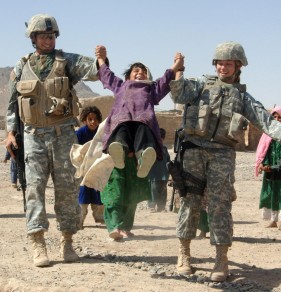
11 November 2015 is the 97th anniversary of the day that the guns fell silent all along the European battlefront that stretched from the Flanders region (located in parts of present-day Belgium, France, and The Netherlands) to the Vosges Mountains in Eastern France. On that day in 1918, at “the 11th hour of the 11th day of the 11th month” the Great War, The War of the Nations, The War to End All Wars, World War 1 came to a close in Europe. Armistice Day (now called Veterans Day in the U.S. and Remembrance Day in other parts of the world) marks only the symbolic end of WWI because, while the conflict ceased on the Western Front, hostilities continued in other areas for months. It wasn’t until 28 June 1919 that the war officially ended with the signing of the Treaty of Versailles by the defeated Germany. 65.3 million men were mobilized among all of the combatants. At the end of the war 7.3 million were dead and another 14.6 million had been wounded.
The end of World War 1 also brought about a speeding up of the collapse of the world’s empires. The German Empire was dissolved by the victors. The British Empire gained some territories from the treaty but, because of the strains of the war, by 1964 the empire was a ghost of its former glory. The Ottoman Empire disappeared by 1923. The French Empire, like the British, made territorial gains after the war but, by 1962, had ceased to exist. The Russian Empire ended with the 1st Russian Revolution in February of 1917 (This was followed in October of 1917 by the 2nd Russian, or Bolshevik, Revolution) and gave birth to the Soviet Empire which in turn died by 1991.
The Japanese Empire saw immense gains during and after the War but ceased to exist by 1945. The Italian Empire gained a few meager territories but, by 1960, dissolved completely. The Portuguese Empire neither gained nor lost territories but by 1999 had divested itself of all of its imperial territories. The American Empire, a fledgling thing which began only in the late 19th Century, also neither gained nor lost any of its few territories, but today retains only some far-flung islands in the western Pacific ocean and the Caribbean Sea that are pretty much left to run themselves.
Why do I mention empires that have either crumbled to a well-earned dust or dwindled to the point where the word empire is meaningless? Because many great changes in the world have been brought about as the result of terrible circumstances. As a result of the aftermath of World War 1 (and also World War 2) far more people enjoy freedom and liberty today than they could have under the empires in existence in the early decades of the 20th century. Great upheavals often bring about great things. And these great things are often bought at great price.
Those who fought and died. Those who left home whole only to return damaged. Those who, on that November morning in 1918, heard the boom of the cannon and the crack of the rifle fall silent and heard, instead, the powerful roar of silence across the land. They all paid a great price.

This Afghan child will have a better, freer, future.
Many more have done the same in the decades since in places the world over so that more people can enjoy the blessings of freedom and liberty.
But we must also recall the words of the inimitable Thomas Jefferson who said that the price of freedom is eternal vigilance. There are nations still today who are ruled by those with the same visions of grandeur and power that were found in the leaders of the old empires. And those leaders must be watched. They must be corralled. They must be made powerless to stop the flowering of true democracy. And tasks like this are usually completed by those who take up arms.
And so, on this day, we honor the men and women of America who have taken up arms to fight to secure and to defend freedom and liberty in the world. Because to do otherwise is unthinkable.
